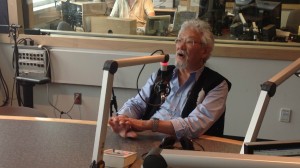To discipline and punish a colleague via academic mobbing, professionals— yes, professionals, including managers— conspire and solicit. This is one insight gathered from Eve Seguin’s astute and timely analysis of the pervasive phenomenon.
Eve Seguin, University Affairs, September 19, 2016, —
Academic mobbing, or how to become campus tormentors
For Professor Caroline Patsias at Université du Québec à Montréal, once a professor at Université de Sherbrooke.
If you’re a university professor, chances are fairly good that you have initiated or participated in mobbing. Why? First, because mobbers are not sadists or sociopaths, but ordinary people; second, because universities are a type of organization that encourages mobbing; and third, as a result, mobbing is endemic at universities.
Unlike bullying, an individual form of harassment in which a typical scenario consists of a boss victimizing an assistant, mobbing is a serious organizational deficiency. Its many consequences are so severe that it is considered a major public health issue. The term itself, mobbing, describes its four essential characteristics: it is a collective, violent and deliberate process in which the individual psychologies of the aggressors and their victim provide no keys to understanding the phenomenon.
Workplace mobbing is a concerted process to get rid of an employee, who is better referred to as a “target” than a “victim” to emphasize the strategic nature of the process. The dynamic is reminiscent of Stalin’s Moscow Trials: the targets are first convicted and evidence is later fabricated to justify the conviction. As sociologist of science Brian Martin put it, everything they say, are, write and do will be systematically used against them.
Successful mobbing leads to any of a number of outcomes: the targets commit suicide, are dismissed (or often at universities, being denied tenure), resign, retire early, take permanent or recurring sick leave (the last three being the most common cases for university professors), or have all their responsibilities withdrawn (as in the case of sidelined senior public servants).
The process begins when a small group of instigators decides to cast someone out on the pretext that he or she is threatening their interests. This concept covers a variety of cases; perhaps the target is not behaving the way they would like, does not share their view of the organization, earns more than they do or challenges questionable practices. Mobbers use negative communication as their powerful weapon of elimination.
At first unbeknownst to the target, negative communication consists of rumours, complaints (often anonymous), conniving looks, mocking, gossip, misrepresenting facts, insinuations, hearsay, defamation, lies, secret meetings to discuss “the case,” disparaging comments, police-like surveillance of the target’s work and private life to gather “evidence” that justifies the aggression, and so on.
The other side of negative communication is directed at the target and includes unjustified accusations, manipulating or withholding information, sending menacing or hateful messages, calling purportedly friendly or disciplinary meetings, psychologically destabilizing the targets by incessantly accusing them of making mistakes, intimidation, tampering with their workstation, offering to “help” with so-called adaptation problems, and public humiliation.
Read More: Eve Seguin, University Affairs, September 19, 2016,

 Follow
Follow


UBC Sauder Business admin, still no accountability? #ubc #ubcsauderschool #mba #bcpoli #bced #yteubc
Call this and this research, call it evaluative opinion, call the facts, facts. Perhaps cheer-fully, perhaps not, UBC campus waits for accountability over the Sauder rape cheer.
Thus far, President Toope’s Measures fail to effect any form of accountability at the top. For example, the last measure, “[Dean] Helsley announced that the Sauder School of Business will no longer support the CUS FROSH events,” is meaningless, if according to a.nony.mouse in the Ubyssey comments section, “the CUS is its own entity and operates separately from the administration, something that has also been made clear in all investigative documents to date.”
I guess it is plausible that former Dean Muzyka micro-managed the students for over a decade and once he left, the repressed returned and they went wild, so to speak. But I don’t buy this narrative.
Instead, I stand with Nathan in the Ubyssey comments, “there is some fault on the part of the administration.” There may be, as Harbinder says, a “culture of shallowness” and as I say a “culture of entitlement.” For the record, I’ve worked with excellent students and faculty from Sauder, but evidently something (or someone) is failing at the top.
The facts speak: In the fact-finding report, curiously, the words “administration” and “administrator” do not appear while “student/s” appears 46 times. There were no facts to find on administrators or administration?
If it is plausible that of the 11 Assistant and Associate Deans + Dean Helsley, none have responsibilities for “students” in their portfolio, then the President’s Office has failed. That’s a fact of administrative bloat: Between 1999 and 2013, this Faculty’s administrators at that level more than doubled. Yes, Sauder has Dean Muzyka to thank. And increasing tuition and fees have that to factor in. Yet none of these 12 now have any responsibilities for students? I don’t buy that. So is the buck or loonie passed back to the Sauder Dean’s Office?
Similarly, someone or something is failing at the top if of the 12 senior administrators none have curriculum in their portfolio. I find it incomprehensible that it has taken this cheer, a fact-finding report, campus outrage, and nearly 2014 for Sauder to finally get around to, announced on 1 November by Dean Helsley, “Implementing changes in the curriculum to enhance themes of social justice, ethics, gender and cultural sensitivity, and their role in corporate social responsibility and the creation of a civil society”?
A top business school finally getting around to this? In this economy and world? There are 12 senior administrators and none have curriculum and courses in their portfolio? What exactly are they doing? Not all can be running around consulting, like Bob Sutton, teaching CEOs how not to be assholes.
Comments Off on UBC Sauder Business admin, still no accountability? #ubc #ubcsauderschool #mba #bcpoli #bced #yteubc
Posted in Academic freedom, Accountability, Administration, Campus Life, Commentary, Environment, Equity, Ethics, Governance, Research, Students, Working conditions
Tagged Administration, Faculty, Organizing, Students, Working conditions